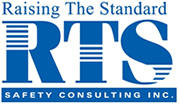Sustainable Development
What is Sustainable Development?
Environmental, economic and social well-being for today and tomorrow
What Are the Challenges?
International Issues of Sustainable Development (IISD)
IISD Publications Centre
Implementing Environmental, Health and Safety (EH&S) Standards, and Technical Regulations: The Developing Country Experience
» Tom Rotherham, IISD, 2003. Paper, 34 pages, copyright: IISD
Excerpts from the article:
As tariff levels have dropped, non-tariff or technical barriers to trade have become relatively more important for developing country market access. Although the WTO Agreement on Technical Barriers to Trade (TBT) addresses these issues, experience suggests that, without certain basic institutional infrastructure, developing countries cannot benefit from the provisions in the TBT Agreement. This paper reviews developing countries' experiences implementing Environmental Health and Safety (EH&S) standards and technical regulations. The paper highlights the kinds of problems that exist, discusses examples of initiatives to address these problems and suggests priorities for future work. It argues that EH&S requirements are no different from other product quality requirements: both are required for market access and both are developed and implemented within a complex institutional and legal framework.
A growing list of environmental, health and safety (EH&S) standards and technical regulations threaten to restrict developing countries' access to OECD markets.
Without adequate infrastructure in place to deal with these standards and technical regulations, companies in developing countries may find their export markets restricted, not because of an unwillingness or inability to comply, but because of an inability to either identify relevant requirements, implement the necessary institutional and procedural changes, or demonstrate compliance in a credible fashion.
EH&S requirements are intended to promote public goods in support of sustainable development. If they also unfairly restrict market access, then they may harm economic development—one of the three pillars of sustainable development.
As governments increasingly turn towards market-based tools to promote sustainable production and consumption, including eco-labels and certification systems, efforts must be made to ensure that these do not harm trading opportunities for companies in developing countries.
There are three institutions that form the basis of any quality assurance regime:
- rule making, including the development of mandatory technical regulations and voluntary standards;
- conformity assessment; and
- accreditation.
A company needs to understand and have access to each of these institutions if it is to avoid the technical barriers to trade that can often be related to quality assurance requirements. With globalization, the architecture of each of these institutions is increasingly being built at the international level. But without a sound national infrastructure, most countries will find it difficult to participate in the international activities.
There are three general categories of issue that give rise to implementation problems at the level of standards and technical regulations:
1. transparency, access to information and participation in the development process;
2. technical capacity to implement; and
3. international standards and technical equivalence
Conclusion
Standards and technical regulations present barriers to trade at the level of each of the three quality assurance institutions: rule making (standards and technical regulations); conformity assessment; and accreditation. Indeed, even the relatively small number of case studies that have looked into the barriers imposed by environmental standards have shown that very real problems exist at each level….
Of course, without sufficient levels of technical assistance , no kind of barrier to trade can be easily overcome.
What is the Answer?
Let Raising the Standard Consulting be your technical assistance in overcoming the barriers to sustainable development. We have the tools and the expertise to level the playing field and bring internationally accredited tools and techniques to your organization.

